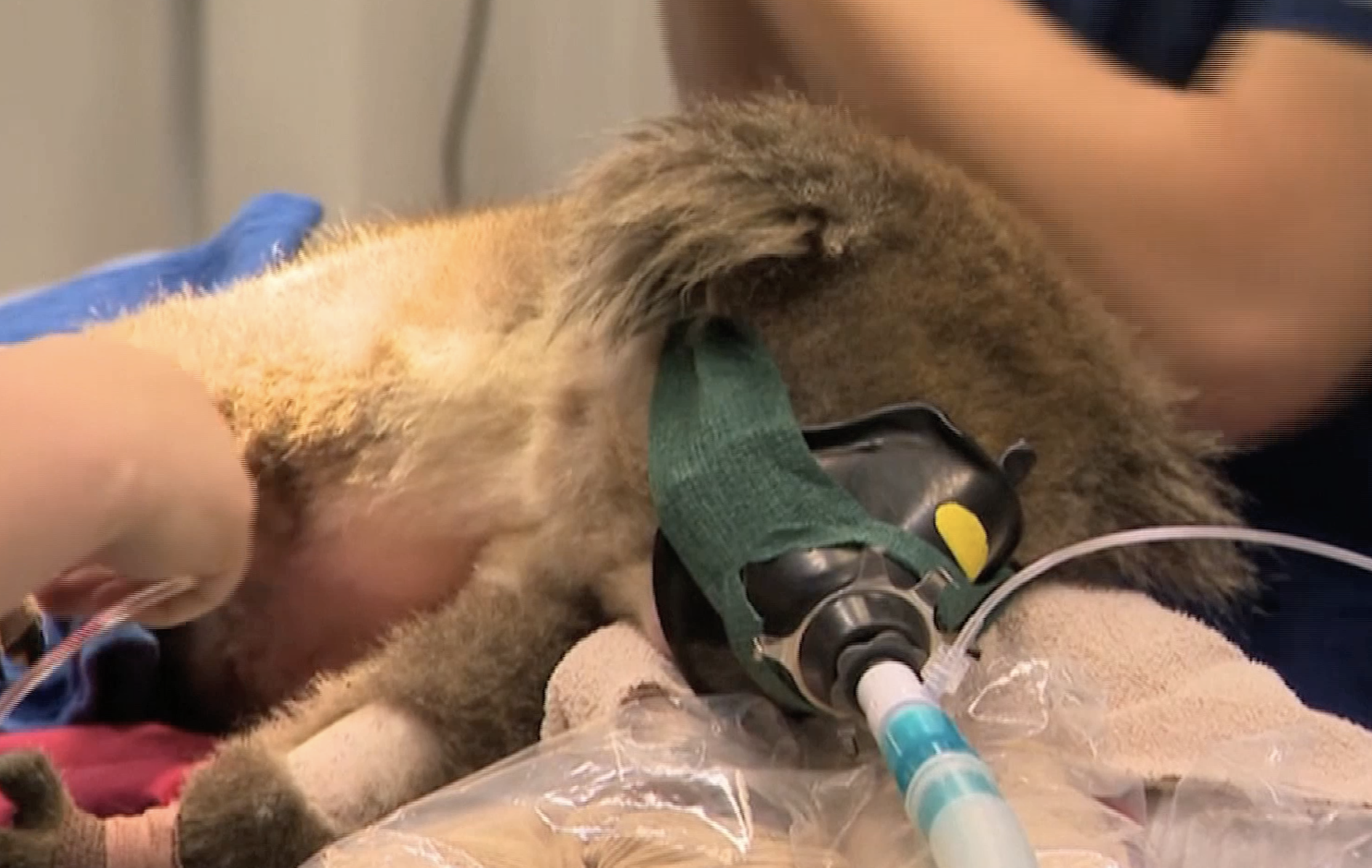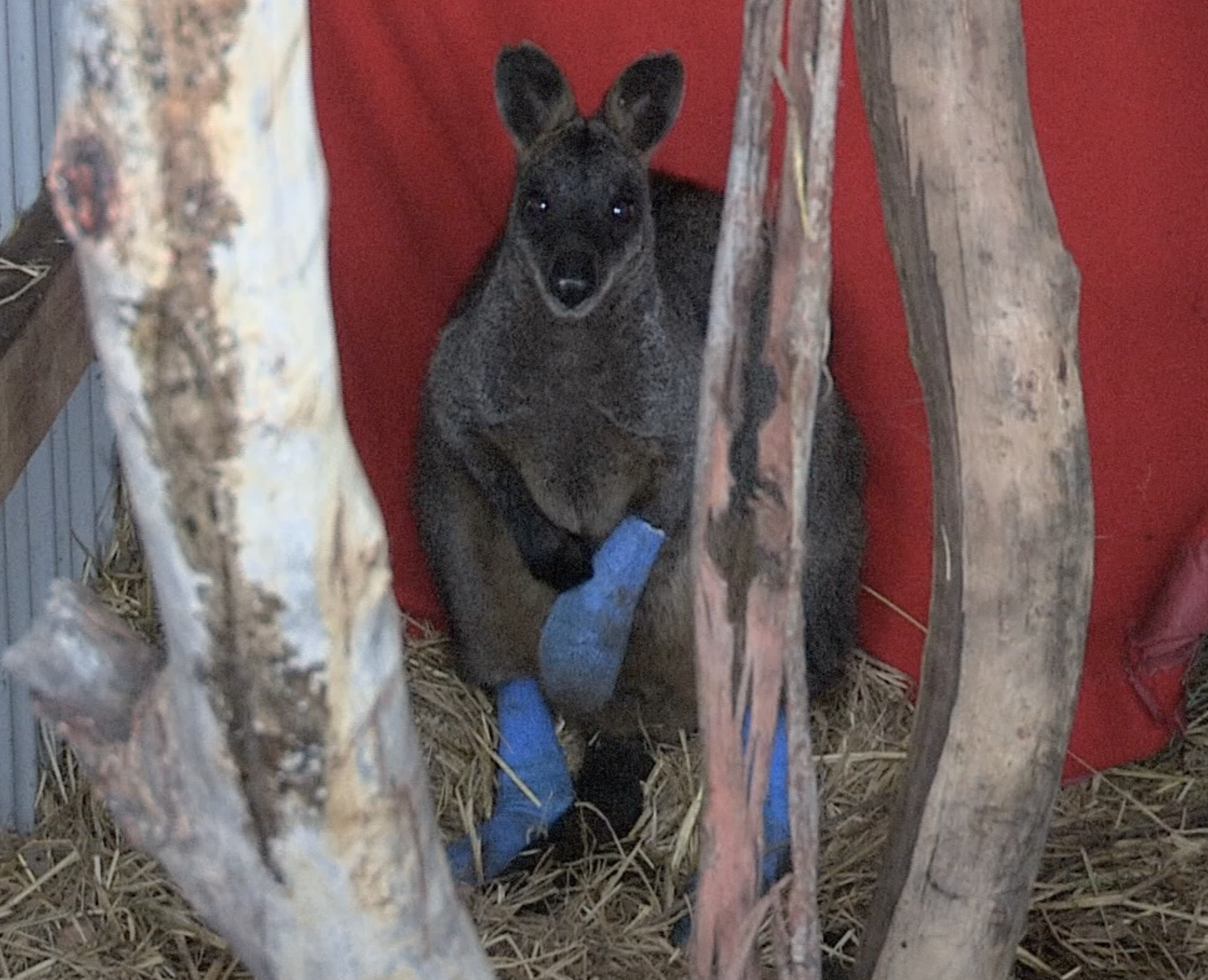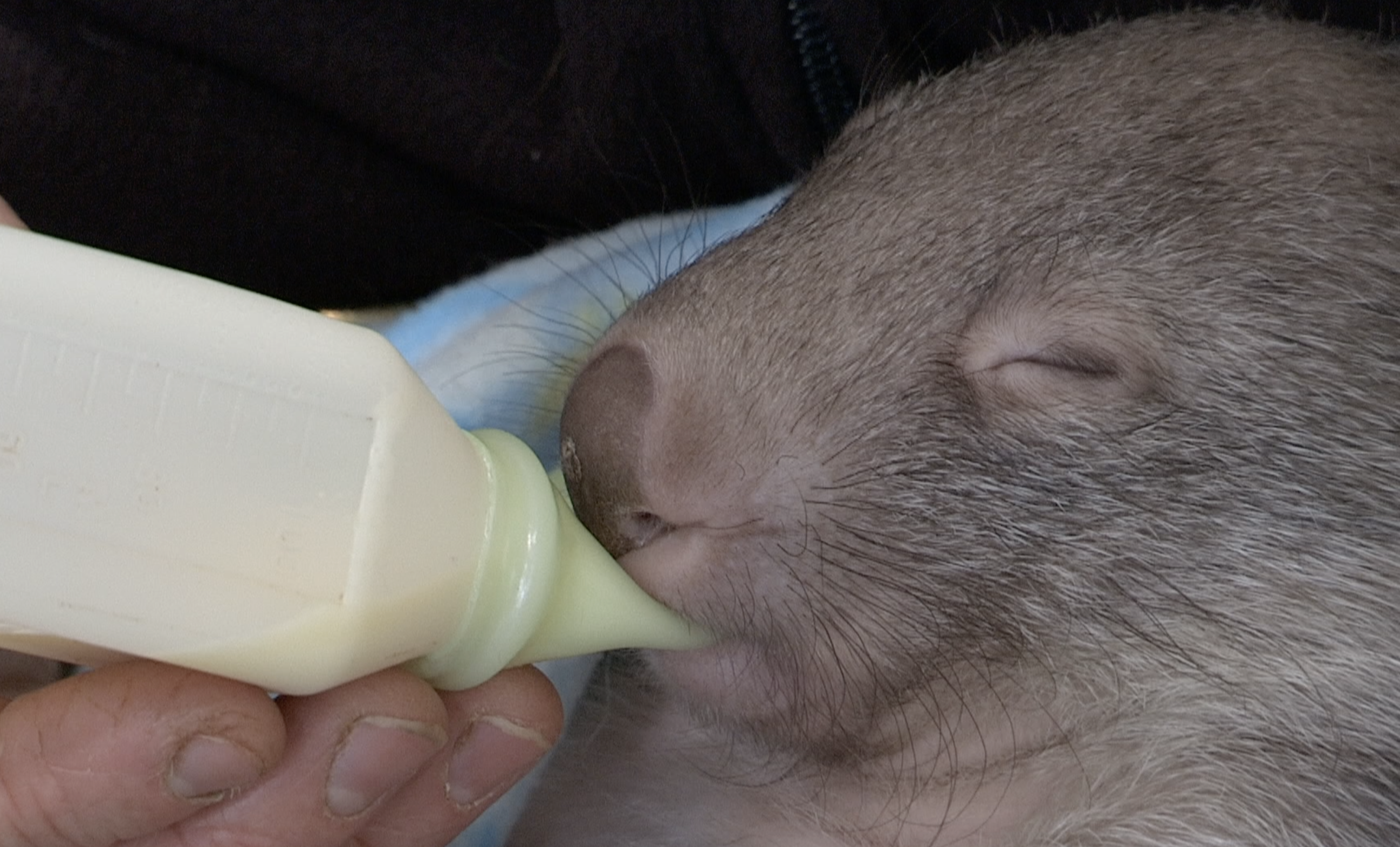Scientists believe more than one billion animals have been killed by bushfires across Australia so far this season.
"Native mammal, birds and reptiles. That figure is really highly conservative because if you look at the burnt area in New South Wales and Victoria alone and multiply the average densities of the bird, reptile and mammal groups by the area burned you get to a figure of a billion. When you start adding in the burnt areas of Queensland, Western Australia, and South Australia the figures are going to be much, much higher," said University of Sydney professor of ecology Chris Dickman.

A koala injured in a fire receives emergency treatment. /Reuters
A koala injured in a fire receives emergency treatment. /Reuters
The entire koala population have died, and Dickman believes the entire species have perished in the fires.
"It's pretty tough. You know when you go back into an area, wooden or forest that has been badly burnt, it will be silent, it will be black, there won't be anything happening and it will be silent and dark for years to come depending on the amount of rainfall or severity of the burn. And worse than that, you know what was there. The koalas are certainly the poster child of the effects of the fires, but behind the koalas are this whole suite of incredibly rich, diverse, beautifully charismatic important species that have gone. Some for good perhaps but, hopefully, many others just temporarily and it is just tragic to think of what has been lost."

A wallaby with burns from a bushfire. /CGTN Photo
A wallaby with burns from a bushfire. /CGTN Photo
Wildlife rescue groups are struggling to keep up with the number of injured and displaced animals that have lost their food sources and their habitats.

A baby wombat is fed by an animal rescue worker. /CGTN Photo
A baby wombat is fed by an animal rescue worker. /CGTN Photo
"You still have this connection with the wildlife," said Wildlife Rescue South Coast worker Richard "Woody" Woodman. "It is part of our national treasure, a lot of unique wildlife not found anywhere else in the world, and you have to do the best we can to hang on to what we've got."
(If you want to contribute and have specific expertise, please contact us at nature@cgtn.com.)